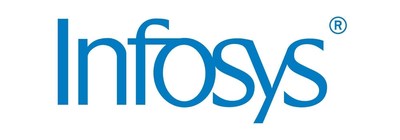While only 2% are ready, most companies expect productivity gains of 10-40% with Enterprise AI: Infosys Research
Comunicato Precedente

Comunicato Successivo

The Infosys Enterprise AI Readiness report includes insights from over 1,500 respondents across Australia, New Zealand, France, Germany, the United Kingdom, and the United States, backed up with in-depth interviews with 40 senior executives in the US and UK.
The Infosys research highlights that while executives envision AI as the next industrial revolution, transforming business models and shaping the new economy, many companies lack the foundational building blocks for successful enterprise AI adoption. According to the research, enterprises expect an average increase of 15% in productivity from their current AI projects, with some anticipating up to 40% gains, yet only 2% of organizations are ready across all five key dimensions: talent, strategy, governance, data, and technology. The biggest gaps lie in technology readiness, with only 9% of companies possessing the necessary AI capabilities like machine learning frameworks, prebuilt algorithms, and dynamic compute. Additionally, data accuracy, processes, and accessibility are significant challenges, with only about 10% of respondents reporting ease of data location and access for AI projects.
To overcome these hurdles and realize the full potential of AI, including gen AI, companies must address readiness gaps and foster a culture of innovation. A clear AI strategy aligned with business objectives is essential, encompassing technology investments, talent acquisition, and ethical considerations.
The research outlines five steps to close the gaps and reduce apprehensions about AI to accelerate adoption:
Mohammed Rafee Tarafdar, Chief Technology Officer, Infosys, said: "To become enterprise-wide AI-ready and realize the promise of this technology, including gen AI, it is imperative to establish a robust and scalable foundation. Our research and learnings from our AI-first transformation journey has shown that data readiness, enterprise gen AI platform with responsible AI guardrails, and AI talent transformation are key to accelerate and democratize AI development. This must be complemented by an AI foundry and factory model for scaling AI initiatives across the enterprise."
Jeff Kavanaugh, Head of Infosys Knowledge Institute, said, "Our research found that Enterprise AI, including gen AI, promises to unlock up to 40% in productivity gains, yet only 2% of companies are truly ready. This readiness gap represents both a challenge and a massive opportunity. Those who act now – by building a clear AI strategy, including gen AI, establishing strong governance, and upskilling talent – will not only lead the next wave of innovation but will fundamentally reshape their industries. AI is not a distant goal; it is the prerequisite foundation for future competitiveness. The time to invest in AI readiness is now."
To read the full report with detailed insights, please visit here.
About Infosys

Infosys is a global leader in next-generation digital services and consulting. Over 300,000 of our people work to amplify human potential and create the next opportunity for people, businesses and communities. We enable clients in more than 56 countries to navigate their digital transformation. With over four decades of experience in managing the systems and workings of global enterprises, we expertly steer clients, as they navigate their digital transformation powered by cloud and AI. We enable them with an AI-first core, empower the business with agile digital at scale and drive continuous improvement with always-on learning through the transfer of digital skills, expertise, and ideas from our innovation ecosystem. We are deeply committed to being a well-governed, environmentally sustainable organization where diverse talent thrives in an inclusive workplace.
Visit www.infosys.com to see how Infosys (NSE, BSE, NYSE: INFY) can help your enterprise navigate your next.
Safe Harbor
Certain statements in this release concerning our future growth prospects, or our future financial or operating performance, are forward-looking statements intended to qualify for the 'safe harbor' under the Private Securities Litigation Reform Act of 1995, which involve a number of risks and uncertainties that could cause actual results or outcomes to differ materially from those in such forward-looking statements. The risks and uncertainties relating to these statements include, but are not limited to, risks and uncertainties regarding the execution of our business strategy, increased competition for talent, our ability to attract and retain personnel, increase in wages, investments to reskill our employees, our ability to effectively implement a hybrid work model, economic uncertainties and geo-political situations, technological disruptions and innovations such as Generative AI, the complex and evolving regulatory landscape including immigration regulation changes, our ESG vision, our capital allocation policy and expectations concerning our market position, future operations, margins, profitability, liquidity, capital resources, our corporate actions including acquisitions, and cybersecurity matters. Important factors that may cause actual results or outcomes to differ from those implied by the forward-looking statements are discussed in more detail in our US Securities and Exchange Commission filings including our Annual Report on Form 20-F for the fiscal year ended March 31, 2024. These filings are available at www.sec.gov. Infosys may, from time to time, make additional written and oral forward-looking statements, including statements contained in the Company's filings with the Securities and Exchange Commission and our reports to shareholders. The Company does not undertake to update any forward-looking statements that may be made from time to time by or on behalf of the Company unless it is required by law.
![]() View original content:https://www.prnewswire.co.uk/news-releases/while-only-2-are-ready-most-companies-expect-productivity-gains-of-10-40-with-enterprise-ai-infosys-research-302289891.html
View original content:https://www.prnewswire.co.uk/news-releases/while-only-2-are-ready-most-companies-expect-productivity-gains-of-10-40-with-enterprise-ai-infosys-research-302289891.html

Ufficio Stampa
PR Newswire (Leggi tutti i comunicati)
209 - 215 Blackfriars Road
LONDON United Kingdom




